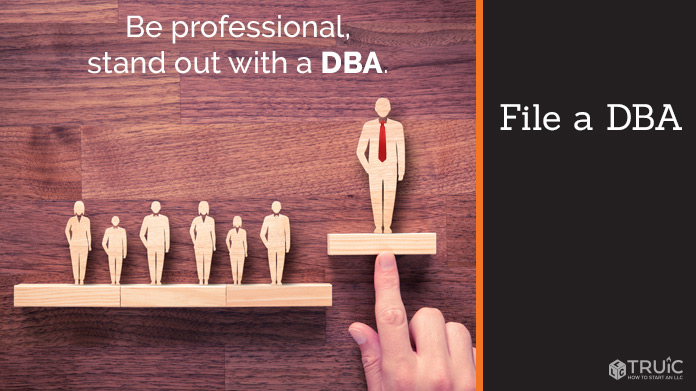A DBA (Doing Business As,) is not needed to form or run a business. A DBA is merely the fictitious name under which a business operates, which is often utilized by sole proprietorships, partnerships, LLC’s as well as corporations for branding purposes. Often, there is confusion, especially amongst first-time entrepreneurs, as they are under the impression that a DBA is a type of business structure, which is not the case. There is the misconception that, when registering a DBA, they are also creating a formal business structure with the added misconception that they are provided with liability protection. Entrepreneurs need to realize that if they only register a DBA, they are merely just creating a sole proprietorship with a DBA name. The registration of a DBA aids with banking and branding the business, but the personal assets are still exposed to possible lawsuits that the business might be exposed to in the future.
What can be achieved by registering a DBA?
A DBA allows for businesses to operate under a name that is different to a business’s legal name.
How is a DBA beneficial?
By registering a business with a DBA, the business is allowed to operate under a name that is different to the owner’s legal name, allowing for the business to come across as more credible. A DBA is also rather beneficial in the event where a business would like to introduce a new product or a line of business under a different name but the owner does not intend on creating a new legal entity.
How does the DBA process commence?
The DBA filing process varies from state to state. In some instances, businesses need to file for a DBA at state level, while other states require companies to file the DBA with the cities or countries in which they plan to operate. Unfortunately, Kansas, New Mexico, and South Carolina currently do not allow businesses to file for a DBA.
How does the tax work for DBA’s?
A DBA is not recognized as a legal entity. For this reason, it is not required to file separate taxes. Business conducted under the DBA is considered as part of the legal entity as far as tax purposes are concerned.
Do you need a separate bank account for a DBA?
It is not a requirement that a business should have a separate bank account for a DBA. But, if the DBA is for a sole proprietorship purpose, it is recommended that a separate business bank account exist.
What are the costs involved to start up a DBA?
Just like the process for registering a DBA varies from state to state, so does the costs. Typically, businesses can expect between $10 t0 $100.
DBA vs. LLC
The decision of registering a DBA or choosing to form an LLC depends on the business situation as well as the needs of the business in question. Choosing to operate a sole proprietorship under a DBA name can prove to be a simpler choice. It is also more economical in the short term, but LLCs still offer more important advantages, especially when it comes to personal liability protection.
How can you identify a DBA?
An example of a DBA would be a sole proprietorship locksmith that is owned by John Doe and chooses to operate under Perfect Keys.
How do you write a DBA name?
The name of the DBA should be written the exact way it is registered.
How to set up a DBA?
The process is a three-step process. Step one, select the state in which the DBA will be registered. Step two, complete the DBA name search. And, step three, register the DBA in the state in which the business will be located.
There are two reasons that guide whether or not a DBA is necessary. The business is already registered as a formal business entity to branch out into new products, services or brands, or there is an intention to rebrand. The business in question is not yet registered as either a sole proprietorship or partnership and would prefer to operate under a name other than the personal name already chosen for the business, this is usually an option considered for a business that has a low profile risk.
This is a Contributor Post. Opinions expressed here are opinions of the Contributor. Influencive does not endorse or review brands mentioned; does not and cannot investigate relationships with brands, products, and people mentioned and is up to the Contributor to disclose. Contributors, amongst other accounts and articles may be professional fee-based.

